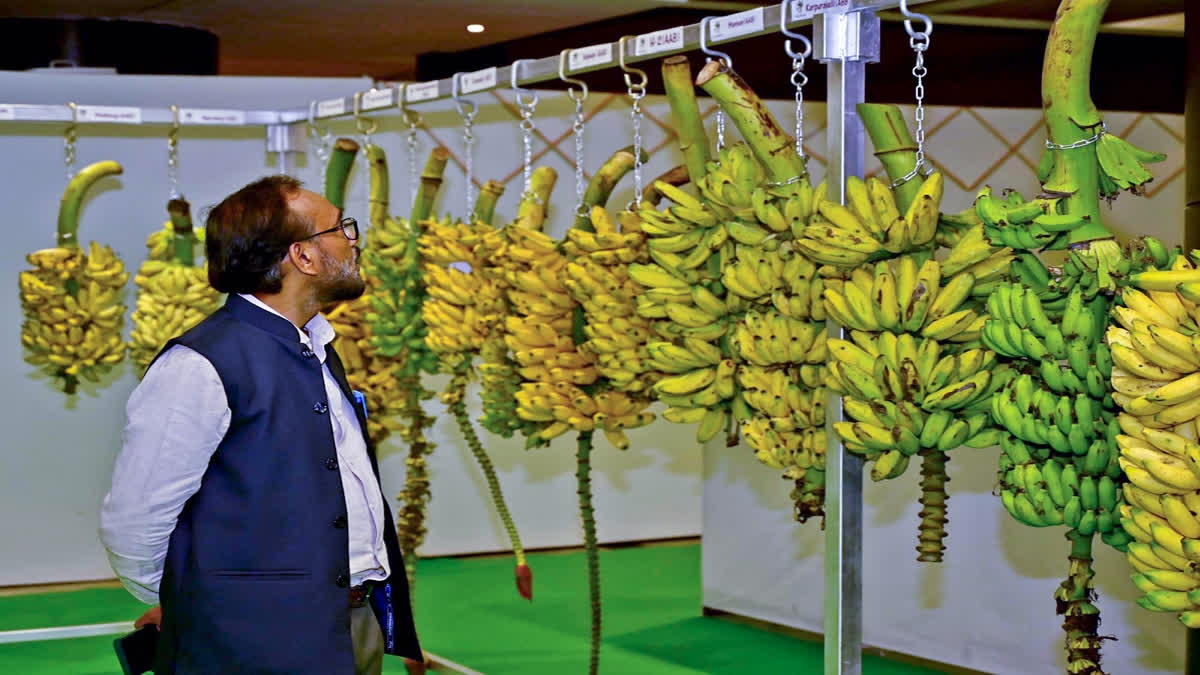New Delhi: The Indian Council of Agricultural Research (ICAR) celebrates its foundation day on July 16 every year. It is celebrating its 96th Foundation and Technology Day to highlight agricultural innovations and technologies developed.
According to the ICAR website, the ICAR is an apex research organisation of the country with a high standing amongst international agricultural research institutions. Since its inception in 1930, the Council has been spearheading agricultural research, education and extension activities for productivity enhancement and diversification of Indian agriculture.
Growing population, changing lifestyles, expanding urbanisation and accelerated climate changes are creating new challenges for the national agricultural research system. Whereas in the past, the challenge was to supply adequate food, but now it is to provide adequate nutrients to promote health, and in the future, the challenge would be to provide optimal nutrients based on an individual's genetic profile, it states.
To keep pace with the changing environment, the ICAR has been updating its visions and strategies from time to time. The first systematic effort to envision the challenges and opportunities, and formulate its own strategy was undertaken in the last year of the 20th century by preparing the 'Vision 2020 document'.
The next attempt was after five years by bringing out the 'Perspective Plan' and the 'ICAR Vision 2030', coinciding with XI plan. 'ICAR Vision 2050', provides the strategic framework for innovation-led inclusive and sustainable agricultural growth in the country, the website states.
This year, Union Minister of Agriculture and Farmers Welfare Shivraj Singh Chouhan will inaugurate the 96 Indian Council of Agricultural Research Foundation and Technology Day on Tuesday in New Delhi. A total of 323 varieties of 56 crops including cereals, oilseeds, forage crops, and sugarcane were released during 2023-24.
These varieties include 27 bio-fortified varieties and 289 climate-resilient varieties for the various biotic and abiotic stresses. Based on breeder seed, about 16.0 Mha area is under bio-fortified varieties of different crops including wheat (13.0 Mha), rice (0.5 m ha), pearl millet (1.5 Mha), lentil (0.50 m ha) and mustard (1.0 Mha) during 2023-24, Ministry of Agriculture & Farmers Welfare said.
"Varietal improvements, one of the major mandates of ICAR, and farmers' access to improve quality seeds of superior varieties have consistently increased the productivity and quality of farm produce. During 2014-15 to 2023-24, a total of 2593 high-yielding varieties were released which included 2177 climate resilient (83 per cent of total) with biotic and abiotic stress resistance, and 150 bio-fortified crop varieties. Over 1.0 lakh quintal breeder seeds on more than 2200 varieties of 56 crops are being produced. Deployment of climate resilient technologies led to enhanced production even during the abnormal years,” the Ministry said.
Among the landmark achievements are high-yielding fine grain aromatic Basmati rice varieties which contribute to annual export of more than Rs 42,000 crores of which over 90 per cent is contributed by four ICAR varieties namely Pusa Basmati 1121, Pusa Basmati 1509, Pusa Basmati 1401 and Pusa Basmati 1718, it said.
Horticultural production increased 14-fold from 25 Mt (1950-51) to 355.3 Mt (2022-23). About 1071 quintals of breeder seed were produced for horticultural crops during 2023-24, 41 varieties were identified and 2069 germplasm acquired. Moreover, 17.6 lakh quality plant materials were produced, the Ministry added.
ICAR’s foray into precision farming research is a pioneering move that is set to revolutionise agriculture. By pushing the boundaries of robotics in farming practices, ICAR is not only embracing innovation but also paving the way for a future where technology plays a pivotal role in sustainable agriculture.



